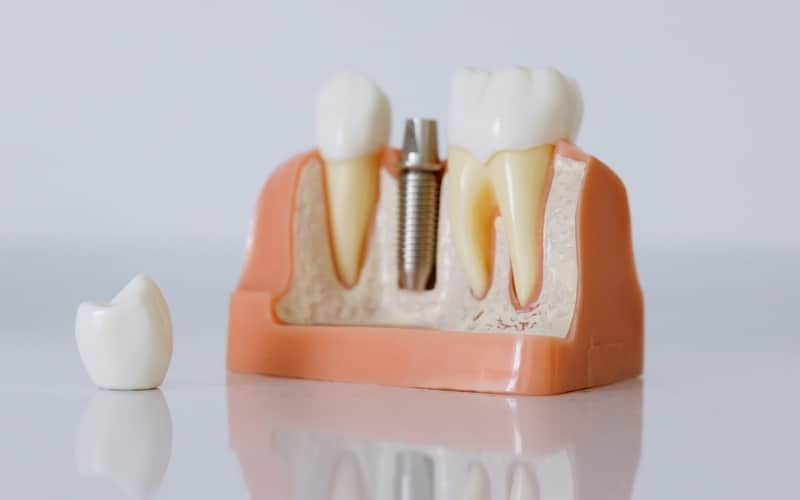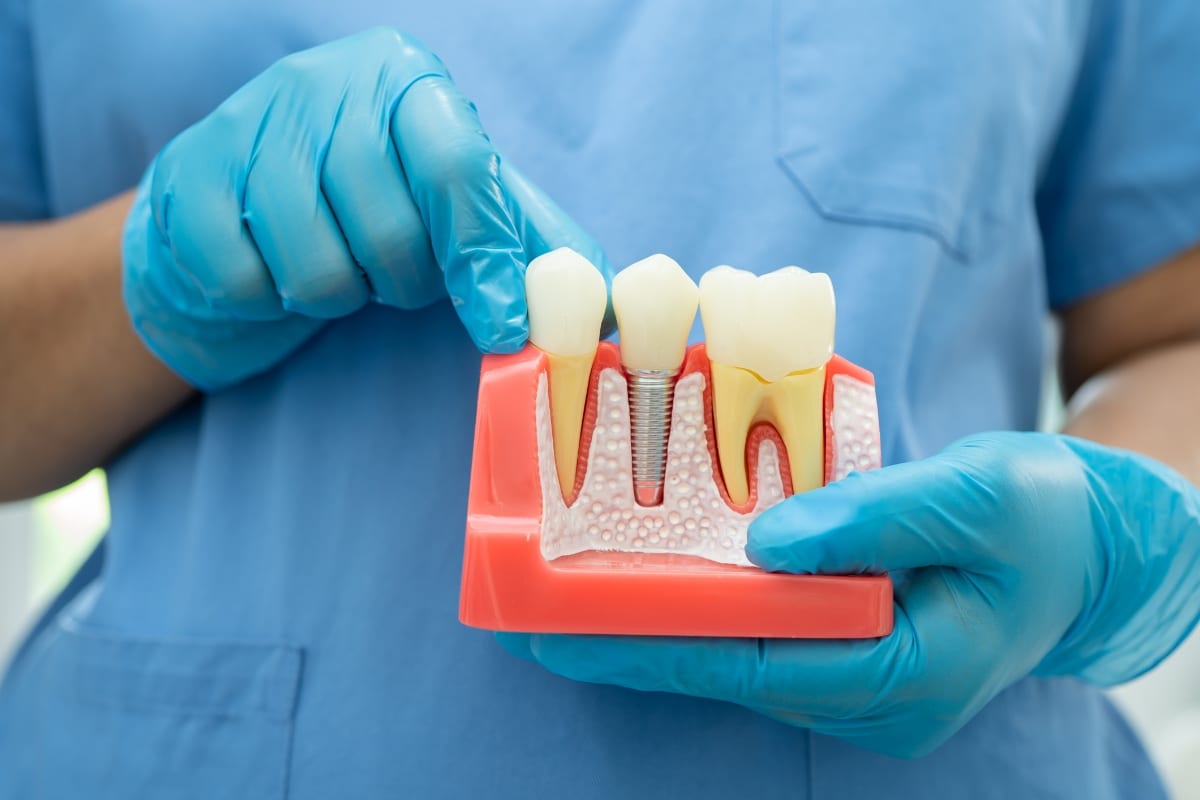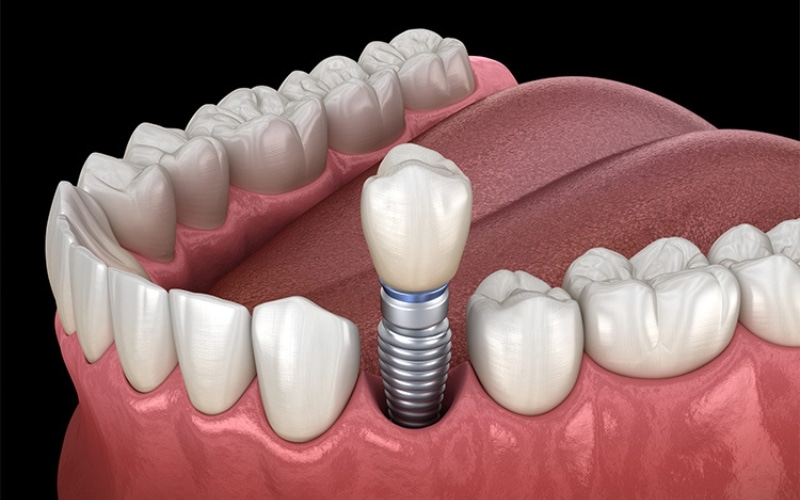New Patients Welcome!

Dental implants provide a dependable way to replace lost teeth, but sometimes they can fail. When a dental implant fails, it’s crucial to determine whether it has to be fixed or whether it can be replaced. This decision depends on various factors, including the cause of the failure, the condition of the implant, and the overall health of your mouth.
In this blog, we’ll explore the options available when dealing with a failed dental implant and discuss whether it can be repaired or must be replaced.
What Causes Dental Implant Failure?
Before deciding on repair or replacement, it’s essential to understand why a dental implant failed. Common causes include:
- Infection: An infection around the implant site, known as peri-implantitis, can lead to implant failure.
- Poor Osseointegration: Sometimes, the implant fails to properly bond with the jawbone.
- Mechanical Issues: Problems such as a loose crown or a broken implant can cause failure.
- Inadequate Bone Density: If there isn’t enough bone to support the implant, it may fail.
Can a Failed Dental Implant Be Repaired?
In a few cases, a failed dental implant can be repaired. Here are scenarios where repair might be possible:
- Loose Components: If the issue is a loose crown or abutment, tightening or replacing these components might solve the problem.
- Minor Infections: Early-stage infections can sometimes be treated with antibiotics, and the implant can be preserved.
- Adjustments: If the implant is improperly positioned but still stable, adjustments or additional procedures might help save it.
When Replacement Is Necessary?
However, there are situations where replacing the implant is the best option. These include:
- Severe Infection: If an infection has caused significant damage to the surrounding bone, a new implant might be required after the infection is cleared.
- Failed Osseointegration: If the implant hasn’t integrated with the jawbone, it’s often better to remove it and replace it after addressing any underlying issues.
- Extensive Bone Loss: In cases where there’s considerable bone loss, a bone graft might be needed before placing a new implant.
Consulting with a Dental Implants Dentist
Consulting an implant dentist is crucial for determining the best course of action. They will conduct a thorough examination and use imaging tools to assess the situation. They can then recommend whether repair or replacement is more appropriate for your specific case.
If you’re dealing with a failed dental implant, a dentist specializing in dental implants can provide insights tailored to your needs. They will help ensure that any issues are addressed before deciding whether repair or replacement is the best option.
Steps to Take After a Failed Implant
Regardless of whether repair or replacement is needed, taking the right steps after a failed implant is crucial for your oral health:
- Seek Professional Advice: Consult with a dental implant dentist to evaluate the situation and get professional recommendations.
- Follow Treatment Plans: Adhere to any prescribed treatment plans, whether they involve antibiotics, bone grafting, or other procedures.
- Maintain Oral Hygiene: Keeping your mouth clean can help prevent further complications and support the success of any new implants.
Expert Care and Solutions for Dental Implants
If you’re in Ventura and facing issues with a dental implant, it’s essential to seek assistance from local experts like The Smile Shapers. These experienced professionals specialize in dental implants in Ventura and provide personalized care. Whether you require a new implant or adjustments to an existing one, the right dental team will support you throughout the process.
When deciding whether to repair or replace a failed dental implant, several factors come into play, including the cause of the failure and the condition of the implant. If you’re dealing with this situation, consult a dental implant specialist to determine the most suitable course of action. Addressing the issue promptly, whether through repair or replacement, is key to ensuring the long-term success of your dental implants.





